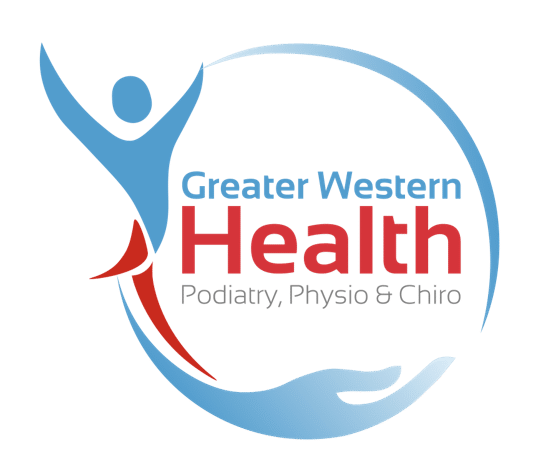Whether you were hurt at work or elsewhere, rehabilitation is an essential part of the healing process for any injured employee. The maintenance of an individual’s health and well-being, as well as a seamless return to work, depends heavily on the work of rehabilitation providers. With in-depth coverage of nuances that are often overlooked, this article offers valuable insights for those working in rehabilitation services in Hawkesbury.
What is a Workplace Rehabilitation Provider?
Workplace Rehabilitation Providers are specialists in their field, across various allied health specialties. They focus on helping wounded employees heal and return to work. They are not only medical specialists; they are also specialists in workplace rehabilitation with professional licenses, having knowledge of the particular requirements of various professions and sectors including podiatry, physiotherapy and chiropractic
Understanding the Role of Rehabilitation Providers
Professionals working in rehabilitation, especially in an allied health rehabilitation facility, are assigned a variety of duties intended to assist injured workers. These are complex positions involving cooperation with a range of stakeholders, such as insurance companies, employers, and other medical specialists.
Their key responsibilities include:
- Assessment and Planning: Rehabilitation specialists evaluate wounded workers in-depth to determine their capacities, restrictions, and types of injuries. Building on this evaluation is the creation of a customised rehabilitation strategy that is unique to the individual.
- Intervention and Coordination: These specialists plan and direct interventions that might include counselling, occupational therapy, physical therapy, and other support services. Working together with medical specialists guarantees that every facet of the worker’s recovery is covered, providing a holistic space for them to heal and return when ready.
- Workplace Liaison: Rehab providers act as a bridge between the wounded worker and the business, promoting communication to guarantee that the workplace is ready to meet the worker’s needs when they return.
- Education and Support: Part of the job involves essential instruction on health management and injury prevention. Giving the injured worker and their coworkers resources and assistance is one way to create a positive work environment.
- Monitor Your Progress: Rehab providers will also check in often with you to monitor your healing, make necessary plan adjustments, and provide ongoing assistance if required.
- Communicate with Your Employer and Other Healthcare Professionals: Work along with all those providing your care to guarantee a seamless transition back to work.
What to Expect When Working in Rehabilitation Services
Initial Contact and Communication
Usually, the first time a worker interacts with a rehabilitation provider, they go over in great detail their injury, medical history, and job function. Gaining trust and knowing the worries and expectations of the employee need open and caring communication.
Developing a Rehabilitation Plan
Working together, a rehabilitation strategy is developed. Usually, it entails defining reasonable objectives for recovery and going back to work, defining particular actions and therapies, and routinely evaluating and making required plan adjustments.
Regular Monitoring and Adjustment
Continual progress monitoring of the worker is one of the most important parts of working in rehabilitation. This entails routine check-ins, reevaluations, and changes to the rehabilitation plan to make sure it stays applicable and successful.
Worksite Assessments
Rehabilitation specialists frequently evaluate the workplace to find any possible risks or changes required to make the injured worker comfortable. By taking the proactive stance, the danger of re-injury is reduced and the required adjustments are made before the worker returns.
Enhancing the Rehabilitation Experience
Even if a rehabilitation provider‘s fundamental duties are well-documented, there are other approaches that can improve a worker’s recovery experience:
- Personalised Care: The results can be improved significantly by customising rehabilitation regimens to the particular requirements and preferences of the workers. Including complementary therapies or attending to the psychological components of rehabilitation could be part of this.
- Employee Engagement: Encouragement of the injured worker to take an active role in their rehabilitation might help them feel motivated and in charge. Regular feedback sessions and worker involvement in the decision-making process can also improve engagement.
- Training and Development: The most recent information and abilities are ensured for rehabilitation providers via ongoing professional development. This will enhance the standard of treatment given and adjust to changing rehabilitation best practices.
Benefits of Working with a Workplace Rehabilitation Provider:
- Improved Recovery: You run less of a chance of developing a long-term handicap if you heal more quickly and successfully with an organised rehabilitation programme.
- Faster Return to Work: Early help and intervention can reduce lost productivity and pay by enabling you to return to work sooner.
- Improved Work Performance: Your job performance will improve if you work with a workplace rehabilitation provider who can help you reclaim your pre-injury skills and adjust to work demands.
- Reduced Risk of Re-injury: A workplace rehabilitation provider can help lower the chance of additional illnesses or injuries by addressing underlying problems and encouraging safe work habits.
Working in Hawkesbury rehabilitation services provides a fulfilling chance to significantly improve the lives of injured workers. Workers may be guaranteed the best possible support on their road to recovery if we recognise the full role of rehabilitation providers, implement improved techniques, and keep a holistic approach. Assisting wounded workers in a seamless and long-lasting return to work is the same whether one works at a rehabilitation facility or coordinates with other stakeholders.

